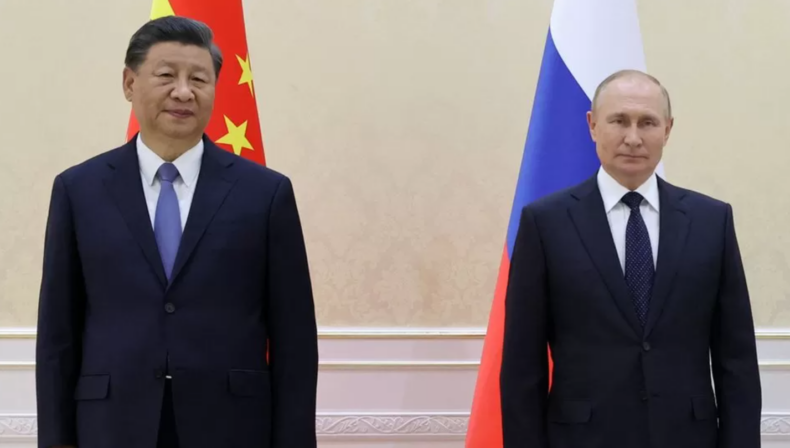
Russian President Mr. Putin and Chinese president Mr. Xi met at SCO summit in Samarkand
Russian President Mr. Putin said, “The US attempts to create a unipolar world.” Mr. Xi said, “China was willing to work with Russia as they are “great powers.” China has not endorsed the “Russian Invasion,” but the country has expanded its trade with Moscow since it was launched.
These two leaders met on the sidelines of the Shanghai Cooperation Organization summit in Samarkand. This meeting comes at a crucial point as Russian troops lose their ground in Ukraine. “We highly value the balanced position of our Chinese friends when it comes to the Ukraine crisis.” Mr Putin told Mr Xi, on his second visit abroad, since the invasion began in February.
This reveals that China had “concerns” about the situation ongoing in Ukraine. “Mr. Putin said he understood.” “During this meeting, we will, of course, explain our position,” Mr. Putin said.
The Russian Invasion led Moscow to its worst crisis with the West since the beginning of the Cold War. There was a rise in the prices of global food and energy.
It also possesses a huge threat to China as its relations with the west have been declining over the years, on issues including human rights and Taiwan’s future. The meeting between Russian President Mr. Putin and Mr. Xi has happened dozens of times over the years, but their latest talks received critical observation.
The growing relationship is characterized as the “defense wall” against western dominance.
Following the reserved roles and with China as the dominant partner, there will be a rise to become an economic superpower.
“Putin is getting more out of it than Xi—Russia is quite isolated internationally,” Professor Emeritus Rosemary Foot, a senior research fellow in international relations at Oxford University, explains.
“So it’s important to show that China is a supportive partner, not an ally but certainly a supportive actor. There is a close relationship.” His trip comes amid fresh lockdowns in China, where his “zero COVID” policy is still in place.
China and Russia have long sought to position the SCO, founded in 2001, with the four ex-soviet central Asian nations, as an alternative to western multilateral groups, countries include India, Pakistan, and Iran.












